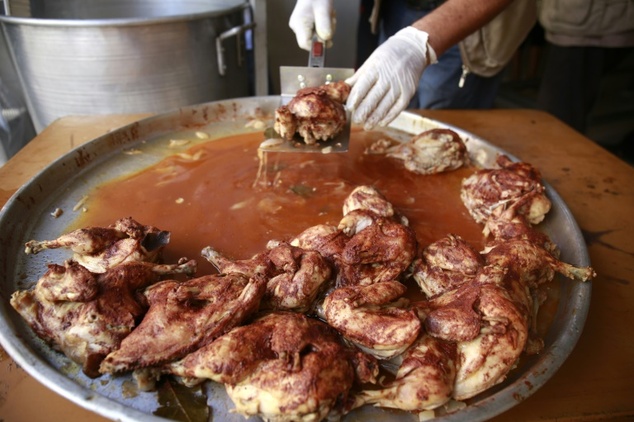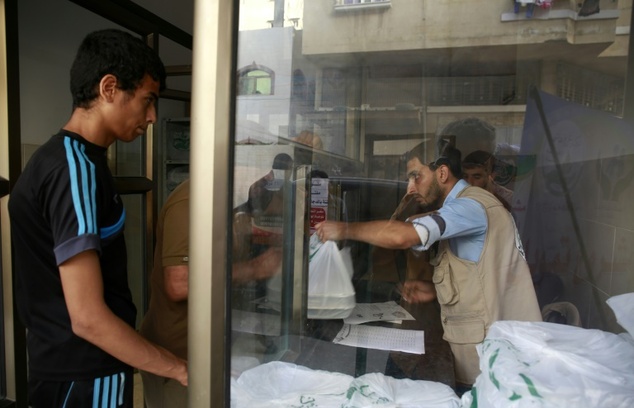In her modest home in the Gaza Strip, Sahar Sherif’s family watches as she ladles out a broth of meat and vegetables for a rare heart-warming meal.
For just a month of the year, a soup kitchen in the Palestinian enclave is offering struggling families like Sherif’s a welcome break from daily worries about where they will find their next meal.
During the holy month of Ramzan, the charity provides the 40-year-old divorcee and her five children — and grandchildren — with a square meal every day at no cost.
“When we eat food from the tekiyya, we feel better,” says Sherif, using an Arabic name for the soup kitchen, an Islamic tradition said to date back to the era of the prophet Abraham.

But during the rest of the year when the kitchen is closed, “I make a pot of tea, I get two tomatoes out and that’s it,” she says, wearing a black nylon overcoat and complete face veil.
“When there’s no food, we constantly feel dizzy.”
Residents in the militant-ruled territory have lived under a punitive Israeli blockade for the last 10 years, and Egypt has largely kept its border with Gaza closed since 2013.
Nearly half the war-torn enclave’s 1.9 million inhabitants live under the poverty line, with 80 percent surviving on humanitarian aid.
Onions in cauldrons
During Ramzan, Sherif can carry home a plate of rice and chicken for her family to break the daily fast after sunset — and a broth to eat before sunrise and another 16 hours of daytime fasting.
For the rest of the year, food is one of many daunting expenses for the head of a poverty-stricken household.
“I have to pay 500 shekels (115 euros) in rent as well as water and electricity bills,” says Sherif, whose two sons are unemployed.
“I receive 100 to 200 shekels in support, but I’m supposed to pay the rest on my own,” she says.
The Gaza Strip has been ravaged by three wars with Israel since 2008, after the militant movement Hamas consolidated its rule over the Palestinian territory.
The Mediterranean enclave’s unemployment rate of 45 percent is one of the highest in the world.
Inside the soup kitchen, volunteers pile marinated chicken pieces onto huge trays and stir translucent onions in cauldrons with paddles.
“In the past, families used to ask for chairs, a mattress or a fridge,” says volunteer Deeb Abdul Hamid.
“But these days, they just ask for food.”
The kitchen gives priority to families without breadwinners such as those headed by widows, divorcees or women whose husbands have emigrated, he says.
Even government employees
Today, government employees who haven’t received their salaries also depend on the charity, says the 24-year-old graduate, who is unemployed.
The traditional tekiyya is helping to alleviate the humanitarian crisis.
Hassan al-Khatib, who manages the soup kitchen in Gaza city, says every day 150 to 200 families queue up outside for food. And more families head to another kitchen in Khan Yunis in southern Gaza.
“The tekiyya is an element of our culture, heritage and history,” says al-Khatib, his head covered in a sparkling white scarf and his salt-and-pepper beard neatly trimmed.

Tradition has it that the first soup kitchen opened centuries ago in Hebron in the West Bank, the other Palestinian territory now occupied by Israel.
The prophet Abraham — who is believed to have been buried in Hebron with his wife Sarah and sons — is said to have left food there for the poor.
The Hebron kitchen — which is said to stand on the ground where he made the first donations — is open all year round.
But in Gaza, the end of Ramazan in early July will mean an end to these food handouts.
After the holy month ends, the soup kitchen will only open twice a week — and only as long as private donations from abroad allow.







